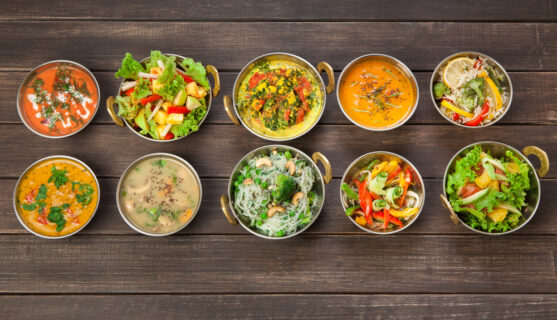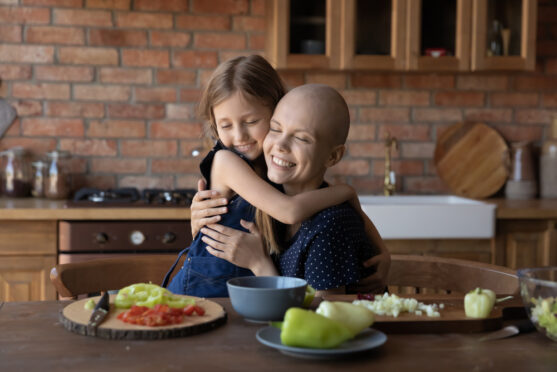Cancer treatment tends to be intensive and spans over a few months. Most cancer treatments tend to have side-effects. These could include mouth ulcers, loss of appetite, fatigue, nausea, vomiting, loss of taste etc. Such side-effects also affect your food intake and your calorie intake.
Your body will need the right nutritional support to tolerate the powerful drugs and treatment procedures designed to kill the cancer cell. This support can only be provided through a well-thought out and detailed diet plan created specifically for your body and medical condition.

A good cancer diet will also help you manage the side-effects you are currently facing. By reducing your side-effects and helping you consume sufficient nutritious food, your diet will help your body grow stronger, with more energy to continue with the cancer treatment.
Without the right amount of calories and protein in your diet, your recovery process can take longer and your quality of life can be affected. This is why your diet during cancer can be crucial to the success of your treatment.
Onco.com offers you the Cancer Diet and Nutrition Programme. Our dieticians will be able to find a cancer diet that specifically works for you and your nutrition goals.
The programme will include weekly meal plans. It can be altered suitably as the treatment progresses and your nutritional goals change.
How will Onco’s Cancer Diet and Nutrition programme help me?
Onco.com’s Cancer Diet and Nutrition Programme is designed to help your body cope with your cancer treatment and recover better.
To begin with, our dietician will assess your daily nutritional requirements based on your type of cancer, treatment type, your current physical and medical condition and any other preferences or allergies you have.
Based on your daily nutritional requirement, a meal plan will be provided to you, along with recipes.
You can have follow-up consultations with the dietician for the next 14 days.
Additionally, a care manager will be assigned to help you through your entire treatment journey. The care manager can provide answers to all your medical and nutritional queries related to cancer. They will also check in with you from time to time, to ensure that your treatment is moving along smoothly as planned.

Why do I need a personalised cancer diet?
A good cancer diet takes into account the present medical condition of the patient, along with the calorie intake, nutrition required for the treatment they are currently on, along with their food preferences, side-effects and allergies.
Therefore, the diet needs to be personalised for the patient as a generic cancer diet will not yield the best results.
Your daily calorie intake will be decided based on multiple factors and might need to be re-assessed at different points in your treatment.
You will be able to find free meal plans on Onco.com’s website. While these can be used by some cancer patients, it is always preferable to customize these plans for your particular condition for best results.
Based on what side-effects you are currently experiencing, your diet plan will need to be customized to include foods that reduce these symptoms. Common side-effects like vomiting, nausea, constipation, diarrhea and loss of appetite can be managed to a good extent through your diet.
Personalizing your diet plan will also ensure better weight maintenance and recovery after treatments like surgery and chemotherapy.
What are the benefits of seeking support from a cancer dietician?
To get the best out of your food during cancer treatment, you will need the help of a qualified and experienced cancer dietician. A cancer dietician is specifically trained to deal with the nutrition challenges that cancer patients face at different points in their treatment journey.
A cancer dietician can also provide you with weekly meal plans, along with the recipes for each dish in the plan. This makes it easier for your caregiver to manage your daily meals.
A cancer dietician will customise the diet plan based on your personal preferences like a vegetarian or a non-vegetarian diet, and also consider other health issues you may be suffering from like hypertension, diabetes etc.
Here’s what other cancer patients and caregivers say about this service:
“At a time when everyone turned us away saying there is no hope, Onco.com was the only place we got some hope from. Their diet plan gave us a lot of relief. There was no path in front of us, and they showed us a path to follow.”
– Ranjith, cancer caregiver, pancreatic cancer
(You can read his full review here.)
“I have taken their nutrition services and now follow a customised diet plan from their senior nutritionist. We are very happy that we are now on the correct treatment path and can be hopeful of better results than before.”
– Radha N, cervical cancer
(You can read her full review here.)
You can read google reviews for Onco.com here.
Your choice of diet could affect your future
Most cancer patients rely on their oncologists to advise them about what diet to follow. While an oncologist can give you the basic information on what to eat and what foods to avoid, he/she is unlikely to provide details of which foods have more calories, which foods can be consumed more easily (based on your medical condition), and which foods can help you deal with side-effects like vomiting, nausea, diarrhea, constipation etc.
Some cancer patients or caregivers may use the internet to find a good cancer diet. While there are a few trusted medical websites on the internet that can give you the correct information on cancer diets, this information will be generic. It will not be specific to your medical condition, cancer type, stage, side-effects, allergies, etc.
This is why you need to consult a cancer dietician for a customised cancer diet. This will help you recover faster, with better weight maintenance and strength.